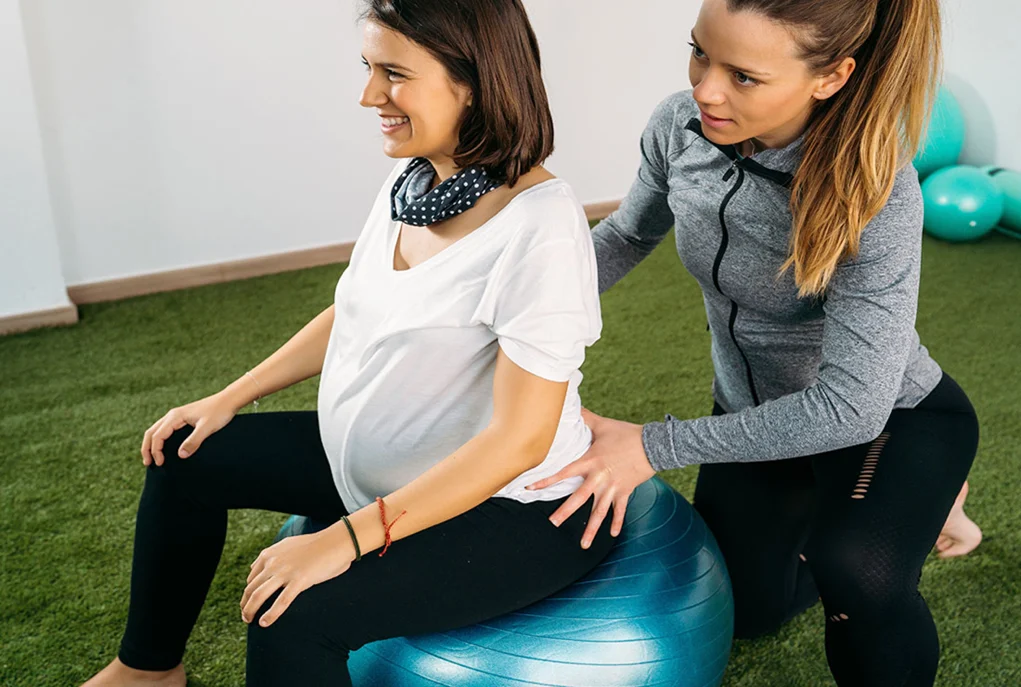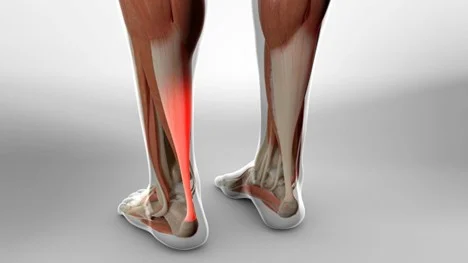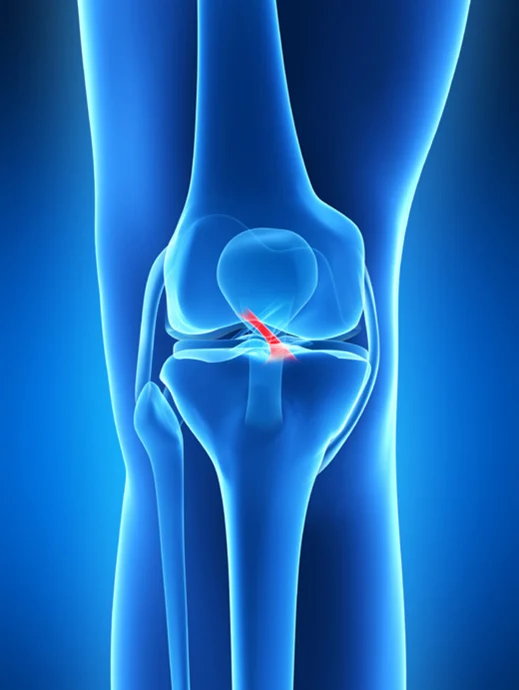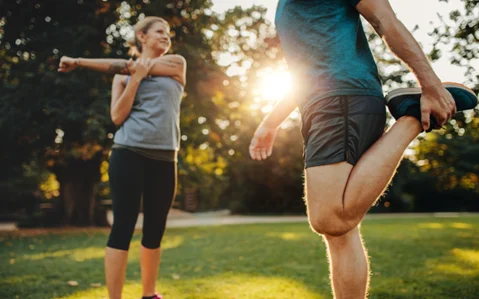- Why Understanding Achilles Health Matters
- Understanding the Difference
- Causes and Risk Factors
- How Physiotherapy Can Help?
- Beyond Pain Relief
- Taking the First Step Toward Achilles Health
Why Understanding Achilles Health Matters
The Achilles tendon is the largest and strongest tendon in the body, connecting the calf muscles to the heel and enabling walking, running, jumping, and nearly every lower-body movement. Despite its strength, it’s surprisingly vulnerable to injury, especially for athletes and active adults.
Pain in the back of the ankle is often labeled as Achilles tendinitis. However, many cases actually involve Achilles tendinopathy, a chronic condition that requires a different, targeted approach. At Sheddon Physiotherapy and Sports Clinic in Burlington, we guide patients through proper assessment, diagnosis, and rehabilitation to protect their tendon health and maintain activity levels.
Understanding the Difference
Achilles Tendinitis is typically acute, occurring suddenly due to overuse or strain. Symptoms often include warmth, swelling, redness, and localized pain. Many cases resolve quickly with rest, ice, anti-inflammatory strategies, and controlled exercises.
Achilles Tendinopathy, on the other hand, is a chronic condition marked by tendon degeneration rather than inflammation. Pain is usually subtle but persistent, often worse in the morning or after activity. Over time, the tendon may thicken, feel stiff, and limit mobility. Simple rest is rarely enough — structured physiotherapy is key to recovery.
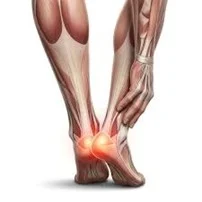 Causes and Risk Factors
Causes and Risk Factors
Achilles injuries often result from multiple factors, including:
Overuse: Sudden increases in running, jumping, or sports activity
Poor biomechanics: Flat feet, overpronation, or tight calves
Improper footwear: Worn-out shoes or high heels increasing tendon stress
Age and activity history: Tendons lose elasticity over time, making older adults more prone to injury
How Physiotherapy Can Help?
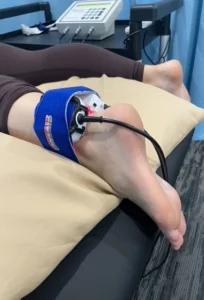 At Sheddon Burlington, our physiotherapists assess the Achilles tendon, calf muscles, ankle mobility, and movement mechanics to create individualized rehabilitation plans. Typical interventions include:
At Sheddon Burlington, our physiotherapists assess the Achilles tendon, calf muscles, ankle mobility, and movement mechanics to create individualized rehabilitation plans. Typical interventions include:
- Eccentric strengthening exercises to safely rebuild tendon strength
- Manual therapy to improve calf flexibility and tendon glide
- Shockwave therapy to stimulate tendon healing
- Education on activity modification, footwear, and injury prevention
Beyond Pain Relief
Addressing Achilles issues early is about more than eliminating discomfort. Proper physiotherapy restores tendon strength, improves function, and supports long-term mobility. Patients gain confidence in their ability to return to sports, running, or daily activities without fear of re-injury.
Taking the First Step Toward Achilles Health
Persistent Achilles pain should never be ignored. Early assessment and a structured physiotherapy program can prevent long-term degeneration, reduce injury risk, and help you stay active safely.
If you’re experiencing Achilles discomfort or want to prevent injury, Sheddon Physiotherapy and Sports Clinic Burlington, is here to help. Contact our team today to schedule an appointment and take the first step toward stronger, healthier Achilles tendons.


